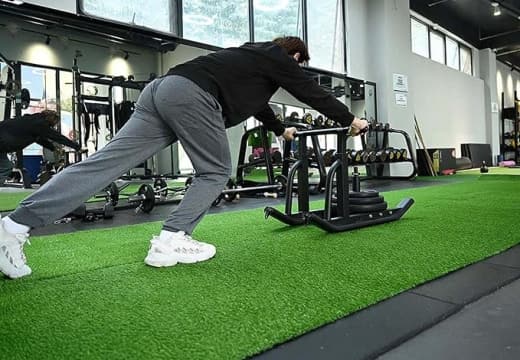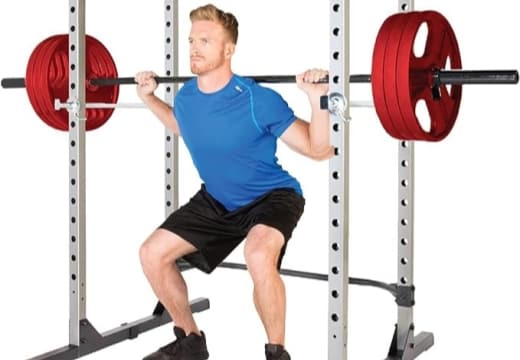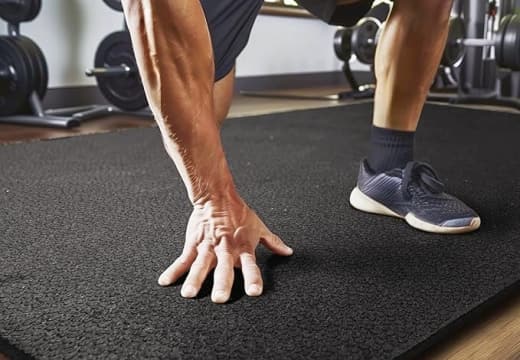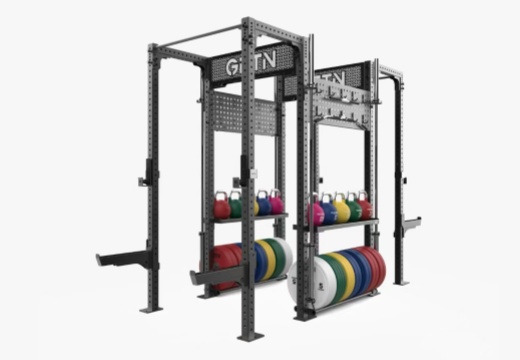The Smart Buyer’s Guide to Commercial Gym Flooring: Avoid These 3 Costly Mistakes
"85% of gym owners regret their flooring choice within 2 years (IHRSA 2023). Here’s how to get it right."
Introduction
"You wouldn’t build a house on sand – so why risk your gym’s success with the wrong flooring?"
Most small-to-medium gyms and fitness studios overspend 30-50% on flooring due to poor planning. This guide reveals:
✓ How to match flooring to your exact workout types (with ASTM/EN standards)
✓ Hidden costs (installation, maintenance, replacements)
✓ Red flags when vetting suppliers
Mistake 1: Choosing the Wrong Thickness
❌ The Problem:
Using "universal" flooring leads to:
Premature wear (HIIT/CrossFit requires ≥8mm shock absorption)
Injury risks (wooden floors fail drop tests under 150kg weights)
✅ The Fix:
| Activity | Minimum Thickness | ASTM Standard |
|---|---|---|
| Yoga/Pilates | 6mm | F2772 |
| Weightlifting | 12mm | F3107 |
| HIIT/Boxing | 10mm + rubber top | F2118 |
Pro Tip: Ask suppliers for drop test videos with 200lb weights.
Mistake 2: Ignoring True Lifetime Costs
❌ The Problem:
Cheap PVC floors ($2.5/sqft) seem affordable but:
Require 3x more maintenance (waxing, adhesive repairs)
Last 2-3 years vs rubber’s 8-10 years
✅ The Fix:
Calculate cost per year:
( Material Cost + Installation ) ÷ Expected Lifespan = Annual Cost
Example:
PVC: ($2.5 + $1.5) ÷ 3 = $1.33/sqft/year
Rubber: ($6 + $1) ÷ 9 = $0.78/sqft/year
Data Source: Facility Maintenance Magazine 2024
Mistake 3: Overlooking Installation Logistics
❌ The Problem:
Rushed installations cause:
72% of flooring failures (NCAA report)
$5,000+ in lost revenue per delayed opening
✅ The Fix:
Ask suppliers these 5 questions:
"Do you inspect my subfloor before quoting?" (Prevents voids/moisture issues)
"Can you install during off-hours?" (For 24-hour gyms)
"What’s your defect resolution process?" (Demand on-site repairs)
 The Complete Gym Setup Guide: How to Source Flooring & Equipment as One System (Not Separate Pieces
The Complete Gym Setup Guide: How to Source Flooring & Equipment as One System (Not Separate Pieces
 Fitness Equipment Buying Guide for Gyms: 3 Hidden Costs Most Owners Overlook
Fitness Equipment Buying Guide for Gyms: 3 Hidden Costs Most Owners Overlook
 The Smart Buyer’s Guide to Commercial Gym Flooring: Avoid These 3 Costly Mistakes
The Smart Buyer’s Guide to Commercial Gym Flooring: Avoid These 3 Costly Mistakes


